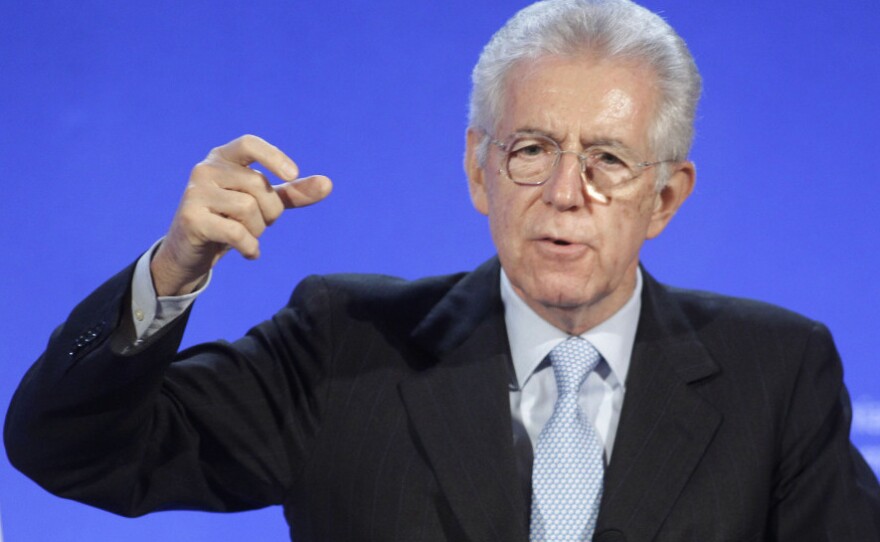As the European debt crisis drags on, one question being asked is what will happen to Italy. The new government of Prime Minister Mario Monti is struggling to convince the financial markets that the country has a plan to pay its debts. Among other things, Monti says he will do something about Italy's long tradition of tax evasion, which is considered somewhat of a national sport.
"Of course people are not proud of evading taxes, but they don't feel as morally obliged to pay taxes as probably other citizens in other countries," says Carlo Fiorio, an expert in public finance at the University of Milan.
Though exact statistics are hard to come by, Fiorio says Italy has one of the highest tax evasion rates in the developed world. One think tank estimated that it costs the government 100 billion euros a year — an astonishing number in an economy the size of Italy's.
The Underground Economy
Part of the problem is Italy's huge underground economy, which is usually estimated at anywhere from 17 percent to 22 percent of gross domestic product.
Take Ermano, a truck driver who's the only one in his family with a permanent job. "My wife is a kindergarten teacher, but she hasn't worked in years," he says. "She picks up work here and there, cleaning and sweeping the steps."
There are a lot of people in Italy like Ermano's wife who work off the books and few pay taxes. Among small-business owners, too, tax avoidance is considered common. Shopkeepers, plumbers, even dentists sometimes offer to reduce your bill if you agree to pay in cash.
Economist Francesco Giavazzi of Bocconi University says for many businesses tax evasion is a matter of survival.
"If you understand tax evasion for the small company in Naples that has the option, either I don't pay taxes or I close down, you don't justify but you understand why they do it," Giavazzi says. "They employ maybe 10 people and they want to keep the thing going. It is harder to understand why the lawyer in Milan would be asked to pay cash, and it does happen."
And it's not just lawyers. The government has prosecuted fashion designers, race car drivers and even former Prime Minister Silvio Berlusconi himself for tax evasion. Often the government ends up settling for a fraction of what's owed.
'Hiding Something'
Fiorio of the University of Milan says wealthy Italians are adept at shielding income from taxes. And a lot of rich people look poor on paper. "Less than 1 percent of the people earn, say, more than $120,000," Fiorio says. "At the same time in the last years you had an increase in luxury cars bought, you had an increase in yachts bought. And so clearly this is hiding something."
This kind of thing happens in every country. It's just more common in Italy. And it's not just individuals. Italian companies routinely transfer income out of the country to avoid corporate taxes.
"The number of corporations that declare zero, negative income is huge, is well above 50 percent," Fiorio says.
The government has sometimes tried to crack down on tax evasion. But those efforts flagged under Berlusconi, who notoriously argued that tax evasion takes place because taxes are too high. With pension contributions, individuals can pay well above 40 percent of their income to the government.
"The problem is we have to change the fiscal system," says Gianfranco Librandi, who owns an electronics company outside Milan. "Don't go over 30 percent. [It's] more reasonable, like they do in many other countries in Europe."
But with its huge debt levels, Italy can't think about cutting taxes right now. Instead, Prime Minister Monti has promised to crack down on tax evaders. The move is already generating opposition. But the new government is hoping that in this current emergency Italian attitudes toward tax evasion are changing.
Copyright 2022 NPR. To see more, visit https://www.npr.org. 9(MDAzMjM2NDYzMDEyMzc1Njk5NjAxNzY3OQ001))







